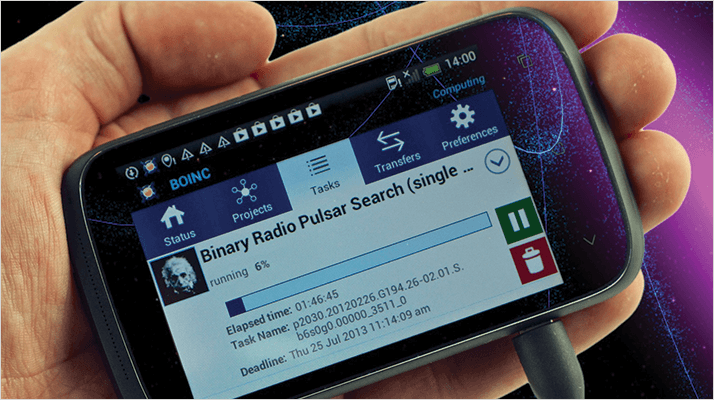The Berkeley Open Infrastructure for Network Computing (BOINC) now gives Android operating system users the potential to donate excess computing power to diverse and fascinating research initiatives with a new app.

What?
Current projects include Einstein@Home’s search for astronomical phenomena, such as radio pulsars (340,000 global participants have helped discover almost 50 to date), and FightAIDS@Home, which allows the Olson Laboratory at the Scripps Research Institute in California to use community computational power to identify new candidate drugs with the right shape and chemical characteristics to block HIV’s essential enzymes.Why?
Data analysis and processing is a major bottleneck in research, especially when access to funding or computer infrastructure is limited. By properly harnessing the growing number of powerful and energy-efficient personal devices, research can be accelerated. As a solid testament to the clout of distributive computing, the World Community Grid, which runs on BOINC, has provided researchers with nearly 775,000 years of free computing runtime since its launch in 2004.How?
The new BOINC app for Android OS (version 2.3 or higher) acts as the conduit between your device’s unused processing capability and the researchers that need it. Download it at the Google Play store. But don’t worry; even if you’re not an Android phone or tablet user, you can still download BOINC software to use the idle time of your regular computerWho?
FightAIDS@Home is just one of many active projects hosted by the World Community Grid. Others include research into green energy and clean water, as well as cures for other diseases. Past projects have included human proteome folding, genome comparisons, and malaria research.BOINC: boinc.berkeley.edu
World Community Grid: www.worldcommunitygrid.org
